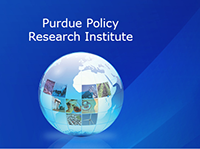Abstract
Experts have acknowledged the limits to growth that the processes of climate change, population expansion, and resource depletion will place on agricultural producers in the 21st century (FAO 2012). In response, scientists are employing biotechnology to create new improved seed varieties. However, developing improved seed technology (IST) involves complex and controversial issues that span across disciplines in the biological and social sciences (see Box 1). In this policy brief, we emphasize the need to better examine the gender and social impacts of advancements in seed technology. Based on a detailed review of the literature, we determine that despite recent advancements, women and small farmers still face distinct challenges, particularly in developing countries. For example, farmers need to access a variety of resources to use IST but access to those resources is restricted by gender and class. Formal regulatory and property rights agreements can further hamper women’s agricultural potential. We suggest that policy makers (1) take into account existing gender and class inequalities in agricultural systems when crafting IST regulations, (2) work to understand how marginalized farmers may be lost in the gap between public and private IST distributions systems, (3) strive to increase transparency in how IST innovations are created and regulated, and (4) promote and support interdisciplinary research teams.
Recommended Citation
Krishnan, Preethi; Raridon, Andrew; Raymond, Leigh; and Subramaniam, Mangala
(2016)
"Review of the Gender and Social Impacts of Improved Seed Technology in Developing Countries: Policy Implications,"
Purdue Policy Research Institute (PPRI) Policy Briefs: Vol. 3
:
Iss.
1,
Article 1.
Available at:
https://docs.lib.purdue.edu/gpripb/vol3/iss1/1
Included in
Agriculture Commons, Political Science Commons, Sociology Commons

